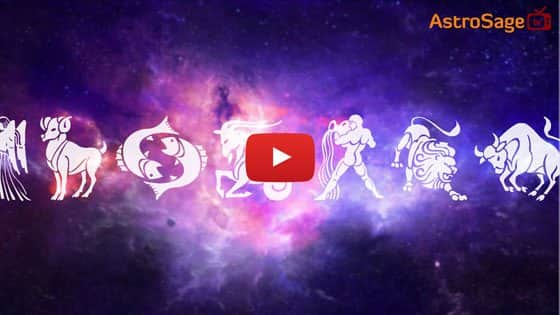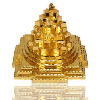Shubh Muhurat for Vidyarambh in 2019
Every coin has two sides. While the birth of a child brings joy and happiness in the life of his or parents, it also puts a bunch of responsibilities on their shoulders. From nurturing the child to cultivating values and imparting knowledge to them is all done by the parents.
The phrase, “Knowledge is Power” is known to all. Vidya refers to knowledge (intellectual as well as spiritual knowledge) and is known to be the ultimate strength for us. The Shodasha Sanskaras cover all the necessary Sanskaras that need to be done in the life of an individual. Owing to the importance of knowledge, Vidyarambh Sanskar is no exception.
If you want to perform the Vidyarambh Sanskar of your child in 2019, you can check out the Vidyarambh Muhurat 2019 given below in tabulated form.

Vidyarambh Muhurat 2019
| Date | Days | Tithi | Nakshatra | Time |
| 18 January 2019 | Friday | Dwadashi | In Rohini Nakshatra | 07:15 - 19:26 |
| 25 January 2019 | Friday | Panchami | In Uttara Phalguni Nakshatra | 07:13 - 18:18 |
| 30 January 2019 | Wednesday | Dashami | In Anuradha Nakshatra | 15:33 - 16:40 |
| 01 February 2019 | Friday | Dwadashi | In Moola Nakshatra | 07:10 - 18:51 |
| 06 February 2019 | Wednesday | Dwitiya | In Dhanishta Nakshatra | 07:07 - 09:53 |
| 07 February 2019 | Thursday | Dwitiya | In Satabhisha Nakshatra | 07:06 - 18:27 |
| 08 February 2019 | Friday | Tritiya | In Purva Bhadrapada Nakshatra | 07:05 - 10:18 |
| 10 February 2019 | Sunday | Panchami | In Revati Nakshatra | 07:04 - 18:15 |
| 11 February 2019 | Monday | Shashti | In Ashwini Nakshatra | 07:03 - 15:21 |
| 15 February 2019 | Friday | Dashami | In Mrigashira Nakshatra | 07:27 - 20:13 |
| 17 February 2019 | Sunday | Dwadashi | In Punarvasu Nakshatra | 06:58 - 08:10 |
| 20 February 2019 | Wednesday | Pratipada | In Magha Nakshatra | 17:37 - 29:53 |
| 21 February 2019 | Thursday | Dwitiya | In Uttara Phalguni Nakshatra | 06:55 - 19:50 |
| 24 February 2019 | Sunday | Shashti | In Swati Nakshatra | 06:52 - 19:38 |
| 28 February 2019 | Thursday | Dashami | In Moola Nakshatra | 06:48 - 19:22 |
| 01 March 2019 | Friday | Dashami | In Purva Ashadha Nakshatra | 08:39 - 10:42 |
| 03 March 2019 | Sunday | Dwadashi | In Uttara Ashadha Nakshatra | 06:45 - 12:29 |
| 08 March 2019 | Friday | Dwitiya | In Uttara Bhadrapada Nakshatra | 06:40 - 18:51 |
| 14 April 2019 | Sunday | Navami | In Pushya Nakshatra | 14:09 - 20:24 |
| 24 April 2019 | Wednesday | Panchami | In Moola Nakshatra | 05:47 - 20:22 |
| 25 April 2019 | Thursday | Shashti | In Purva Ashadha Nakshatra | 05:46 - 12:47 |
| 29 April 2019 | Monday | Dashami | In Satabhisha Nakshatra | 05:43 - 08:51 |
| 06 May 2019 | Monday | Dwitiya | In Kritika Nakshatra | 16:36 - 19:34 |
| 09 May 2019 | Thursday | Panchami | In Ardra Nakshatra | 05:35 - 19:00 |
| 10 May 2019 | Friday | Shashti | In Punarvasu Nakshatra | 05:34 - 19:06 |
| 13 May 2019 | Monday | Navami | In Magha Nakshatra | 15:21 - 19:07 |
| 15 May 2019 | Wednesday | Ekadashi | In Uttara Phalguni Nakshatra | 10:36 - 21:28 |
| 16 May 2019 | Thursday | Dwadashi | In Hasta Nakshatra | 05:30 - 08:15 |
| 23 May 2019 | Thursday | Panchami | In Uttara Ashadha Nakshatra | 05:27 - 20:46 |
| 24 May 2019 | Friday | Shashti | In Uttara Ashadha Nakshatra | 05:26 - 20:42 |
| 29 May 2019 | Wednesday | Dashami | In Uttara Bhadrapada Nakshatra | 15:21 - 20:23 |
| 30 May 2019 | Thursday | Ekadashi | In Revati Nakshatra | 05:24 - 20:19 |
| 31 May 2019 | Friday | Dwadashi | In Ashwini Nakshatra | 05:24 - 17:17 |
| 05 June 2019 | Wednesday | Dwitiya | In Ardra Nakshatra | 07:22 - 19:55 |
| 06 June 2019 | Thursday | Tritiya | In Punarvasu Nakshatra | 05:23 - 09:55 |
| 07 June 2019 | Friday | Chaturthi | In Pushya Nakshatra | 07:38 - 19:47 |
| 12 June 2019 | Wednesday | Dashami | In Hasta Nakshatra | 06:06 - 19:28 |
| 13 June 2019 | Thursday | Ekadashi | In Chitra Nakshatra | 16:49 - 19:24 |
| 14 June 2019 | Friday | Dwadashi | In Swati Nakshatra | 05:23 - 10:16 |
| 19 June 2019 | Wednesday | Dwitiya | In Purva Ashadha Nakshatra | 05:23 - 19:59 |
What is Vidyarambh Sanskar?
The word ‘Vidyarambh’ is made up of two words, Vidya and Arambha. Here, Vidya means knowledge and Arambha denotes the beginning. Thus, Vidyarambh as a whole refers to the beginning of a child's studies.
Why is Vidyarambh Sanskar performed?
There are a number of basic rights of the newborn child and it is the responsibility of the parents of the newborn to provide them with all these facilities. Just like food is an ultimate necessity for the existence of mankind and the absence of good food can ruin mental health, physical health, social status and abilities of a person, the absence of knowledge can also ruin an individual's life.
Keeping a child away from knowledge is like a sin which is equivalent to keeping him or her hungry. A person without knowledge is like a horse without a bridle. Such a person has to face problems because of his or her ignorance and lack of knowledge.
In the olden times, Vidyarambh was a must and every child had to perform the Vidyarambh Sanskar. It was of huge importance and was done before sending the child to Gurukul. Nowadays, times have changed and people have underrated the importance of this Sanskar. Now, Vidyarambh is often done while initiating a child's education or while sending him or her to school. The outlook and the perception about the Vidyarambh Sanskar may have changed, but not the fact that it still holds the position of one of the 16 pillars (Shodasha Sanskaras) and its significance cannot be undervalued.
What is Vidyarambh Muhurat?
As we know, auspicious activities must be done at an auspicious time in order to get the best out of them. There are time-slots predetermined by nature for doing each and every auspicious activity. The best suited time for performing the Vidyarambh Sanskar of a child is known as Vidyarambh Muhurat.
Importance of Vidyarambh Muhurat
Knowledge is the guiding light which helps us to achieve success in all spheres of life. In today's world, the importance of education has increased multifold. A child is often pushed to perform well in their academics in order to pave a bright future for them. But we know that if the foundation is weak, any gigantic structure can collapse. So is the case with a child's education.
Thus, it is very important that an auspicious Vidyarambh Muhurat is selected for commencing the studies of your child so that he or she is endowed with divine blessings. Starting the studies of your child at the wrong time can ruin his or her education and thus, life. Hence, performing the Vidyarambh Sanskar at the appropriate time will pan out to be one of the best decisions that you take for your child and his or her betterment.
When and where is the Vidyarambh Sanskar performed?
Vidyarambh Sanskar is generally done when the child turns 5 years old. It can also be done at the age when a child starts his/her education. Nowadays, children start going to school at an early age, which has reduced the age for Vidyarambh Sanskar from 5 years to 3-4 years of age.
The exact location for performing the Vidyarambh Sanskar is not predetermined. It can be performed at any place where a child can begin his/her education and follow the rituals associated with Vidyarambh Sanskar.
How is Vidyarambh Muhurat calculated?
Like other Muhurat, Vidyarambh Muhurat is determined by using the Panchang and birth chart or horoscope of the child. There are certain auspicious dates of the month, days of the week, Nakshatras, planetary positions, etc. that help to find out the best Vidyarambh Muhurat for a child. Also, Vedic Astrology has listed some dates, days, etc. which are to be avoided while choosing a Vidyarambh Muhurat.
Astrological aspects to consider while determining Vidyarambh Muhurat
- Ashwini, Mrigashira, Rohini, Ardra, Punarvasu, Pushya, Ashlesha, Purva Phalguni, Uttara Phalguni, Hasta, Mool, Rewati, Purva Ashadha, Uttara Ashadha, Chitra, Swati, Abhijit, Dhanishta, Shravana, Purva Bhadrapada, Uttara Bhadrapada and Shatabhisha are believed to be highly auspicious for performing Vidyarambha Sanskara.
- Doing this Sanskara on Shukla Tritiya of Chaitra - Vaishakh months, Shukla Saptami of Magha month and Shukla Tritiya of Phalgun month yields exceptionally good results for the child.
- Performing this Sankara on Chaturdashi, Amavasya, Pratipada, Ashtami and Surya Sankranti day should be avoided.
- Ashtami in Krishna Paksha of Paush, Magh and Phalgun month are considered inauspicious for carrying out this activity.
- Vidyarambh Sanskar should not be performed at the time of Chandra Dosha and Tara Dosha.
- The most favourable days for carrying out Vidyarambha Sanskar are Sunday, Monday, Wednesday, Thursday and Friday.
- Conducting the Vidyarambha Sanskar on Ashtami of Krishna Paksha of Pausha, Magh and Phalgun month should be avoided as it is considered to be unfavourable for the child’s studies.
- As per Vedic Astrology, Taurus, Gemini, Leo, Virgo and Sagittarius ascendant (Lagna) are best suited to perform this auspicious ceremony. It is also believed that if Taurus or Gemini are posited in the 7th house, a benefic planet in the 10th house and no planet in the 8th house, it is considered to be a highly propitious Muhurat for doing Vidyarambh Sanskar.
How is the Vidyarambha Sanskar done?
There are certain preparations that should be done prior to starting the Vidyarambh Sanskar. Idols or pictures of Lord Ganesha and Goddess Saraswati should be arranged. Inkpot and other materials should be prepared for Lekhani Puja. A teacher or Guru should be present. In the absence of the Guru, a coconut can be used to symbolise the teacher.
Like every other auspicious activity, Vidyarambh Sanskar begins with the worshipping of Lord Ganesha, which is followed by a series of other Pujas. A brief description of all these Pujas is given below as follows:
- Ganesha Pujan
Lord Ganesha is the first one to be worshipped and is known to bless the worshipper by eliminating the hurdles in his or her life. Lord Ganesha is worshipped as the lord of education, wealth and wisdom. His blessings help the students to get over the hurdles in their studies. During his/her Vidyarambh Sanskar, the child should venerate Lord Ganesha by offering him whole rice, flowers and Roli.
- Saraswati Puja
Goddess Saraswati is the goddess of knowledge, music, arts, etc. She is known to be the bestower of knowledge and helps the child to gain knowledge. With her blessings, the child is fated to perform well in his/academics. Thus, Saraswati Puja should be done wholeheartedly.
- Lekhani Puja
When a child studies, he/she learn to read, write and understand whatever is taught to him/her. Writing is an important part of studies and a tool is required to write. A pen and an inkpot are the first things that we use to write. Thus, these things are revered during the Lekhani Puja.
- Patti Puja
When we talk about writing, an object is required to write upon. It can be a slate board (Patti), paper, etc. Such things on which one can write are worshipped during the Patti Puja.
- Guru Puja
The role of a Guru or teacher in one's life cannot be stated in words. It is the Guru who imparts knowledge to the child. The Guru is worshipped in Guru Puja.
- Akshar Lekhan Puja
It is during this Puja that the child gets to write the Akshar (alphabet). With the help of Guru, the child may write a letter or Gayatri Mantra.
Note: When the child writes the Akshar, the Guru should sit in the East direction and the child should sit in the West.
Adhering to the process of Vidyarambh Sanskar and performing it during the Vidyarambh Muhurat can help your child to be a powerhouse of knowledge and wisdom, which will eventually lead them to success in their life!
Astrological services for accurate answers and better feature
Astrological remedies to get rid of your problems

AstroSage on MobileAll Mobile Apps
AstroSage TVSubscribe
- Horoscope 2026
- राशिफल 2026
- Calendar 2026
- Holidays 2026
- Shubh Muhurat 2026
- Saturn Transit 2026
- Ketu Transit 2026
- Jupiter Transit In Cancer
- Education Horoscope 2026
- Rahu Transit 2026
- ராசி பலன் 2026
- राशि भविष्य 2026
- રાશિફળ 2026
- রাশিফল 2026 (Rashifol 2026)
- ರಾಶಿಭವಿಷ್ಯ 2026
- రాశిఫలాలు 2026
- രാശിഫലം 2026
- Astrology 2026


































